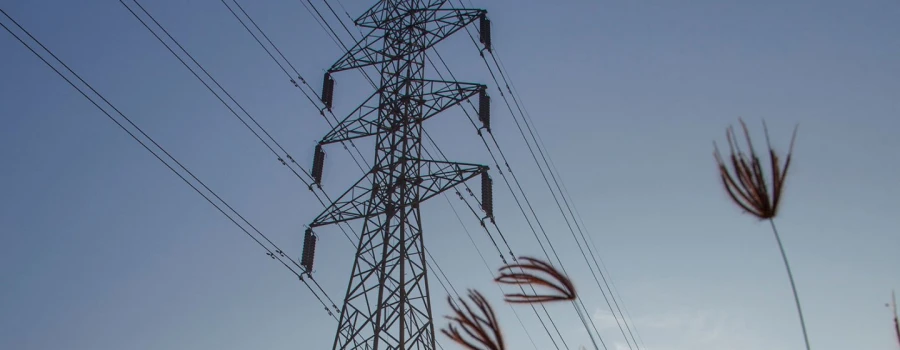Solutions

Power Transmission
Power transmission is the process of delivering generated electricity, usually over long distances to the distribution grid located in populated areas. An important part of this process includes transformers which are used to increase voltage levels to make long distance transmission feasible.
The Power Transmission system is used in combination with power plants, distribution systems, and sub-stations to form what is known as the electrical grid. The grid is designed to meet all of society\'s electricity needs, and is what gets the electrical power from its beginning to its end use. Since power plants are most often located outside of densely populated areas, the transmission system must be fairly large.
Power Transmission is usually transmitted through overhead power lines or Underground power transmission. Overhead power line use high voltage overhead conductors are not covered by insulation. The conductor material is nearly always an aluminium or aluminium alloy (AAC, AAAC or TAL), made into several strands and possibly reinforced with steel strands or composite core. Some examples of cables that are often used include ACSR, ACSR/AS and HTLS Cable (ACCC). Underground power transmission transmitted by underground power cables instead of overhead power lines. Underground cables take up less right-of-way than overhead lines, have lower visibility, and are less affected by bad weather.
The Power Transmission system is used in combination with power plants, distribution systems, and sub-stations to form what is known as the electrical grid. The grid is designed to meet all of society\'s electricity needs, and is what gets the electrical power from its beginning to its end use. Since power plants are most often located outside of densely populated areas, the transmission system must be fairly large.
Power Transmission is usually transmitted through overhead power lines or Underground power transmission. Overhead power line use high voltage overhead conductors are not covered by insulation. The conductor material is nearly always an aluminium or aluminium alloy (AAC, AAAC or TAL), made into several strands and possibly reinforced with steel strands or composite core. Some examples of cables that are often used include ACSR, ACSR/AS and HTLS Cable (ACCC). Underground power transmission transmitted by underground power cables instead of overhead power lines. Underground cables take up less right-of-way than overhead lines, have lower visibility, and are less affected by bad weather.




